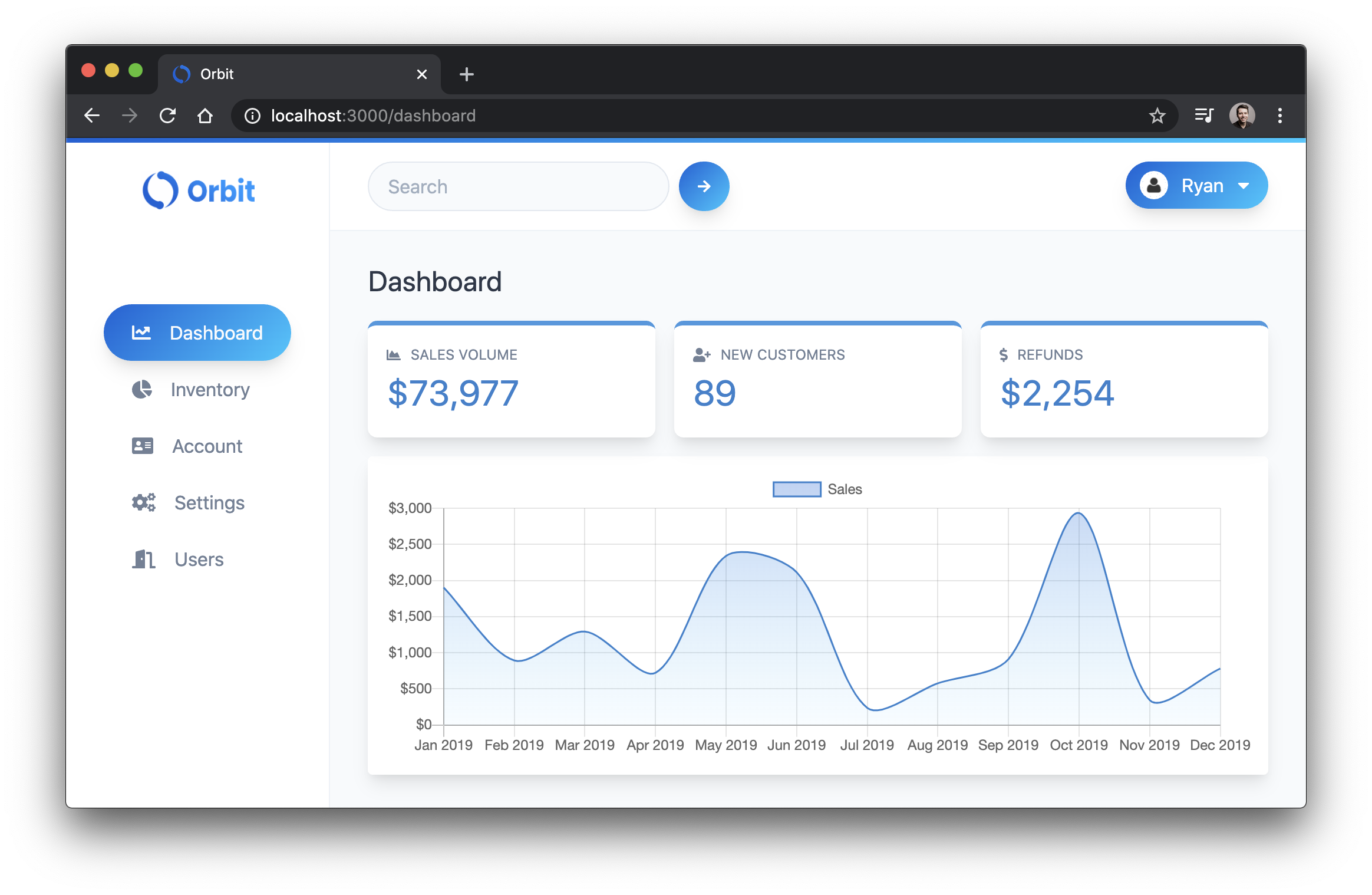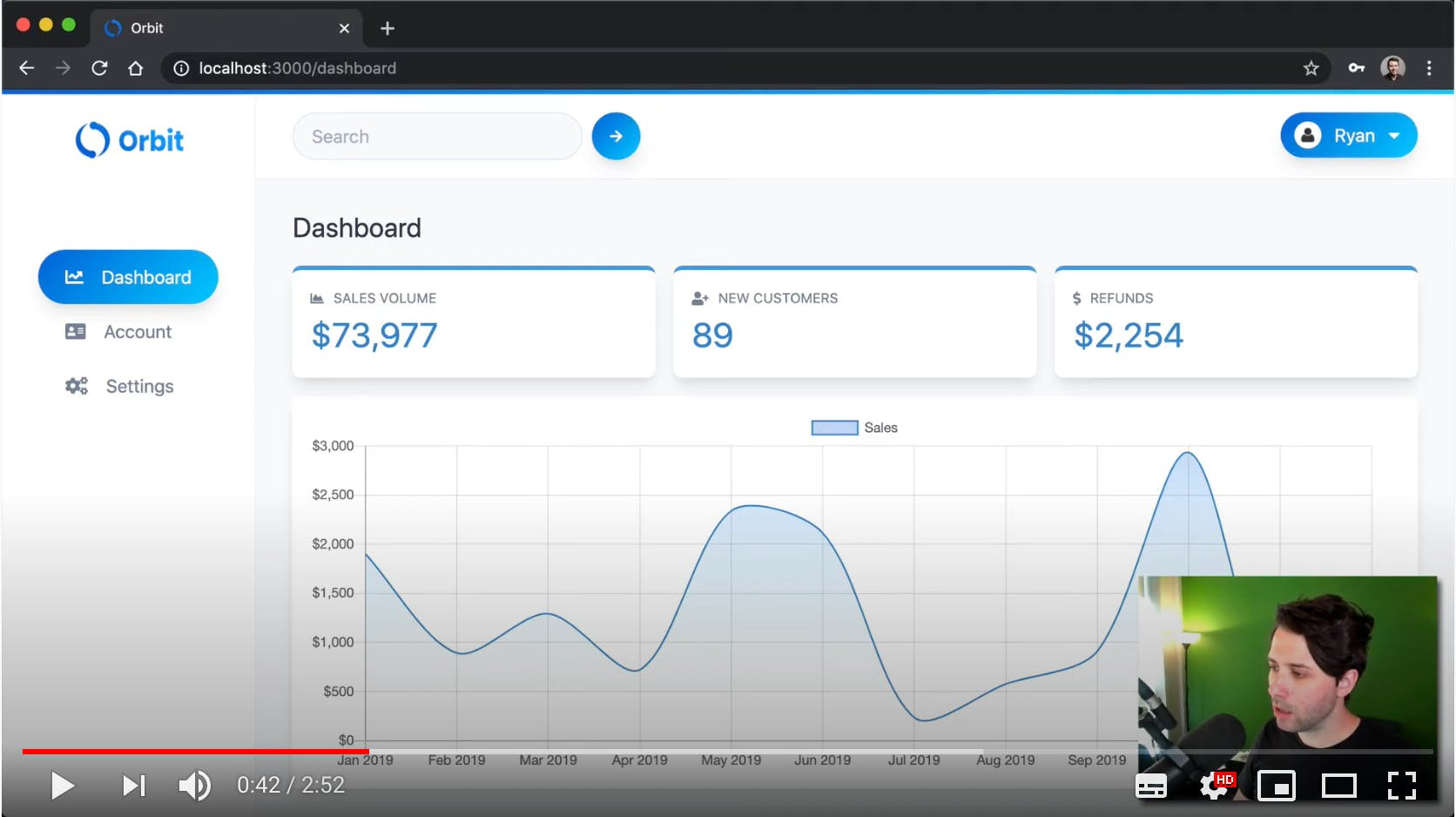👋 Welcome to Orbit! This is a demo app for learning security for React applications. You can find out more at ReactSecurity.io.
This version of the Orbit app uses GraphQL. There's also a version that uses express endpoints.
This example uses Apollo for both the client and the server.
This example demonstrates how to use JSON Web Tokens (JWT) as a way to protect your GraphQL API. The implementation in the GraphQL server demonstrates two methods of protection: using Schema Directives and checking authentication directly in a resolver.
Here's the dashboard for the app

For a more in-depth tour, check out this video:
There are two parts to the app in this project: orbit-app and orbit-api. These are the front end React application and the backend GraphQL API respectively.
We need to install dependencies for both orbit-app and orbit-api. Change directories into each and install with npm or yarn.
With npm:
cd orbit-app
npm install
cd ../orbit-api
npm installWith yarn:
cd orbit-app
yarn
cd ../orbit-api
yarnThe React app contains a file called .env.local. This file has a single variable called REACT_APP_GRAPHQL_URI which is used to connect to the GraphQL API. You can leave this as is.
The backend contains a file called .env.example. This file needs to be renamed to .env and provided with values.
For ATLAS_URL, provide the connection string to your MongoDB Atlas cluster. You can use other MongoDB providers, or even use a local MongoDB connection. Learn how to create a MongoDB instance with Atlas here.
For JWT_SECRET, provide a long, strong, unguessable secret, much like you would in production.
The React app is built with create-react-app. Run it with the script provided in its package.json file.
cd orbit-app
npm startThe Node API comes with a script in its package.json which allows you to run it in development mode with nodemon.
Open a new terminal window, change directories into the API, and start it up.
cd orbit-api
npm run devThe GraphQL API will be running at http://localhost:3001.
Navigate to http://localhost:3000 to see the app running!
MIT

